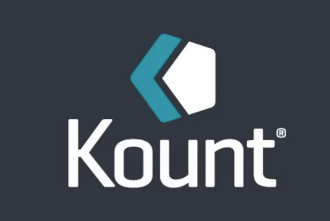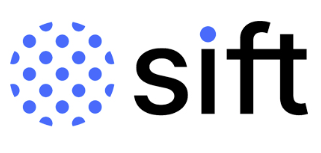Introduction: The Debate Over AI in Fraud Prevention
In an era where digital transactions dominate, securing your business against fraud is more crucial than ever. Fraud prevention AI tools promise to safeguard your business by detecting and preventing fraudulent activities with unprecedented accuracy.
But here's the controversial question: Are these AI tools truly enhancing security, or are they invading privacy and raising ethical concerns? In this article, we’ll explore some of the top AI tools for fraud prevention, their features, and how they’re reshaping the way businesses protect themselves.
Why Fraud Prevention Needs AI Tools
Fraud prevention involves analyzing vast amounts of data to identify suspicious activities and patterns. AI tools are designed to tackle these challenges by:
Automating threat detection: AI can quickly process and analyze data to identify potential fraud, reducing the time needed for manual checks.
Enhancing accuracy: Machine learning algorithms learn from new data, improving their ability to detect fraud over time.
Improving response times: AI tools provide real-time alerts, allowing businesses to act quickly to prevent fraud.
But do these tools really deliver on their promises? Let’s dive into some of the top AI tools in fraud prevention.
Top AI Tools for Fraud Prevention
Here’s a breakdown of some of the most innovative AI tools currently transforming fraud prevention:
1. SAS Fraud Management

Why it’s great: SAS Fraud Management leverages advanced analytics and AI to detect and prevent fraud across multiple channels.
Key features:
Real-time monitoring and scoring of transactions
Machine learning models that adapt to emerging fraud patterns
Comprehensive dashboards for clear visualization of fraud activities
Pros:
Highly customizable with robust analytics features
Ideal for large enterprises requiring comprehensive fraud prevention
Cons:
Requires significant investment and expertise to implement
May be complex for smaller businesses
2. FICO Falcon Fraud Manager

Why it’s great: FICO Falcon Fraud Manager is a leading solution that uses AI to provide a multi-layered approach to fraud detection.
Key features:
Neural network models for adaptive fraud detection
Real-time transaction monitoring and decision-making
Integration with other FICO products for enhanced capabilities
Pros:
Proven track record in fraud prevention
Ideal for financial institutions seeking reliable fraud solutions
Cons:
May require integration with existing systems
Subscription costs could be high for extensive usage
3. Feedzai

Why it’s great: Feedzai offers an AI-powered platform that focuses on risk management and fraud prevention for financial transactions.
Key features:
Machine learning models tailored to specific fraud scenarios
Real-time data processing and analysis
User-friendly interface with actionable insights
Pros:
Scalable solution with flexible deployment options
Ideal for businesses seeking a comprehensive fraud prevention platform
Cons:
Requires technical expertise for full utilization
May involve significant upfront setup costs
4. Kount

Why it’s great: Kount uses AI to deliver advanced fraud prevention solutions, focusing on e-commerce and digital payments.
Key features:
AI-driven identity trust and fraud prevention
Real-time decision-making with customizable rules
Comprehensive reporting and analytics
Pros:
Easy integration with e-commerce platforms
Ideal for online retailers seeking robust fraud protection
Cons:
Limited to digital transactions; may not suit all businesses
Subscription costs could be prohibitive for smaller companies
5. Sift

Why it’s great: Sift provides AI-driven solutions for fraud prevention, focusing on user behavior and transaction analysis.
Key features:
Adaptive machine learning models for dynamic fraud detection
Real-time monitoring and alerting
Seamless integration with existing systems
Pros:
User-friendly interface with powerful AI capabilities
Ideal for businesses seeking a flexible, adaptive solution
Cons:
May require customization for specific business needs
Subscription costs could be high for extensive use
The Pros and Cons of AI Tools in Fraud Prevention
While these tools offer significant advantages, they’re not without their challenges. Let’s break it down:
Pros:
Automated efficiency: AI tools automate threat detection, reducing manual workload.
Enhanced accuracy: Machine learning algorithms improve fraud detection over time.
Improved response times: AI tools provide real-time alerts for quick action.
Cons:
Learning curve: Many AI tools require specialized knowledge and training.
Resource-intensive: AI processes can be demanding on hardware and software resources.
Privacy concerns: Over-reliance on AI may raise ethical questions about data privacy.
FAQs About AI Tools in Fraud Prevention
Q: Can AI tools replace human fraud analysts?
A: While AI tools enhance efficiency and accuracy, they lack the nuanced understanding and intuition of human analysts, making them best suited as complementary tools.
Q: Are these tools suitable for all types of businesses?
A: Yes, many tools like SAS Fraud Management and FICO Falcon offer scalable features suitable for various business sizes and needs.
Q: Do AI tools guarantee improved fraud prevention outcomes?
A: AI tools significantly enhance the chances of improved outcomes through automation and accuracy, but success also depends on strategic implementation and user engagement.
Conclusion: Are AI Tools the Future of Fraud Prevention?
AI tools like SAS Fraud Management, FICO Falcon Fraud Manager, Feedzai, Kount, and Sift are undeniably transforming fraud prevention. They offer automated efficiency, enhanced accuracy, and improved response times, making it easier to secure your business.
